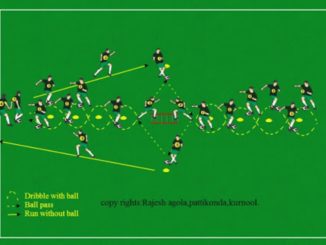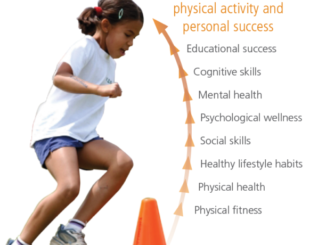What is Physical Literacy?
 For kids to get physically active, they need to feel confident in activity settings. That confidence stems from having learned fundamental movement skills and fundamental sport skills – physical literacy – as a child. Just as learning the alphabet is necessary to read, the development of fundamental movement skills and fundamental sport skills is critical if children are to feel good about physical activity.
For kids to get physically active, they need to feel confident in activity settings. That confidence stems from having learned fundamental movement skills and fundamental sport skills – physical literacy – as a child. Just as learning the alphabet is necessary to read, the development of fundamental movement skills and fundamental sport skills is critical if children are to feel good about physical activity.
Physical Literacy is the mastering of fundamental movement skills and fundamental sport skills that permit a child to read their environment and make appropriate decisions, allowing them to move confidently and with control in a wide range of physical activity situations. It supports long-term participation and performance to the best of one’s ability.
Children should learn fundamental movement skills and fundamental sport skills in each of the four basic environments:
• On the ground – as the basis for most games, sports, dance and physical activities.
• In the water – as the basis for all aquatic activities.
• On snow and ice – as the basis for all winter sliding activities.
• In the air – basis for gymnastics, diving and other aerial activities.
A great physical literacy resource for parents is http://activeforlife.com/. There are articles, activity ideas, information and games that will help your child develop physical literacy.
The Myth That It “Just Happens”
Although many children develop good physical skills on their own, there are many who do not. Physically skilled children often enjoy vigorous healthy play, while the less skilled are often left out. This can lead to decreased effort and eventual withdrawal from physical activities.
Being active can help young kids:
– Maintain a healthy body weight
– Improve movement skills
– Increase fitness
– Build healthy hearts
– Have fun and feel happy
– Develop self-confidence
– Improve learning and attentio
Note: Above article Collection from PISE

